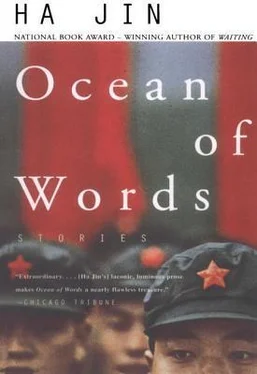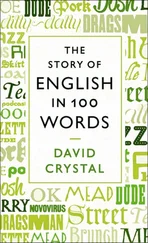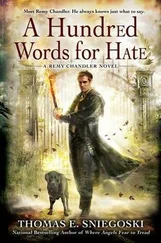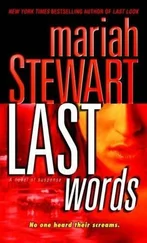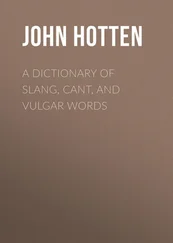“What happened then?”
“The villagers all said that only my granduncle knew … where the guerrillas were, and that he was the liaison man of the guerrillas. In fact he was not. Since he had been killed, the Japs let the folk go in the end.”
“That’s a heroic story,” I said, a little moved.
“A funny one.” He giggled again, but his eyes looked teary. He turned his face to the gloomy wall. After a few seconds, he resumed. “The truth is that all the folk hated his guts, but nobody dared touch him, because he was the lolord in the village. If the Japs had not killed him, the folk would have buried him alive when the Communists came to start the Land Reform. Beheaded by the Japs, he became a hero, a famous one. People in the nearby counties would men-mention his name as a true Chinese. All the villagers were grateful and thought… he had sacrificed himself to save their lives. He didn’t love them a bit, to say nothing of sacrificing his life for them. I don’t think the idea of sacrifice had ever entered his head. Who knows what the devil was in him … that drove him to step out. The funniest part is that — when the Land Reform was about to begin, the head of the Work Group told my grandpa, in secret, to sell all our land. Promptly my grandpa sold it and told everybody … that my granduncle had left a large debt, and that we had to sell everything to clear the debt. So when the reform began, the villagers voted the Diaos’ class status to be middle peasant, since we were indeed as lan-landless as any of them. Isn’t it funny that the richest landlord turned into a middle peasant overnight?”
He giggled huskily. “You see, if my granduncle had been alive, we would’ve been classified as a landlord family. The folk would never have let us Diaos go. They would have wiped us out. If so, I couldn’t be here, commanding the Communist troops.”
“Old Diao, you cannot deny that your granduncle’s deed is a revolutionary part in your family history.” Although I said that, I felt his family’s class status should have remained as landlord.
“Humph, what’s history?” He emptied his mug, giggling again. The tiny flame on the kerosene lamp flickered on the table. “History is a mess of chances and accidents. It’s true that my granduncle was killed by the Japs for his own good, for the villagers’ good, and for our family’s good. But while lying be-beneath the blade of the cutter, he couldn’t know the meaning of his death, could he? It’s all the later occurrences that made his death meaningful, isn’t it?”
“You may be right, I’m not sure.” I was somehow puzzled by his way of thinking. “Then how do you compare your granduncle and Dragon Head?”
“Old Gao, you’re really a simple, honest man. My granduncle died in the hands of our national enemy. That’s why we Diaos are still a Revolutionary Martyr’s Family. Likewise, if Dragon Head is killed by the Russians, or by anyone who happens to be our enemy, he’ll be a hero. Don’t you think so?”
“I’ve never thought of it that way,” I admitted. “I don’t like Dragon Head much, but I can’t tell how he’ll end. He’s so young, probably not thirty yet. Maybe he’ll live longer than I. Who knows?”
“How humorous!” He laughed, his round eyes shining a little in the dim light. “I didn’t know you had a sense of humor, Old Gao. Let’s forget Dragon Head. Cheers.”
We drank the last drop. He returned to his room. I went to mine, leaving the mugs and the chopsticks on the table for the orderly to clear away.
At four o’clock the next morning, I was woken up by a call from the Third Battery. Commander Meng spoke on the phone. “Our storehouse was broken into.”
“What’s lost?”
“I don’t know exactly at this moment. Commander Gao, I’m leaving for the storehouse now, and I will inform you immediately after I know.”
“I’m coming. See you at the storehouse.” I put on my clothes and pistol and set out for the western end of the village.
The dawn was just breaking, and it felt rather chilly walking through the moist air. Five minutes later, I was at the storehouse, where Commander Meng, Political Instructor Wang Hsin, and two soldiers on sentry duty had already gathered. There was a hole, as large as a jeep wheel, in the back wall. “Commander Gao, two of the transceivers are missing, so far as we can tell,” Meng reported.
“Fortunately,” Instructor Wang said, “our ammunition has been moved to the new barracks — ”
“Son of a rabbit,” I cut him short. “It’s Dragon Head! Yesterday afternoon he asked me for transceivers. I refused him, so he had them stolen at night. I’ll go and question him.”
“No, you should not.” Commissar Diao emerged from behind. “Old Gao, don’t act rashly. We have to think about this.”
At this moment a clatter of horses’ hooves came from the east. We all turned to watch. A group of fully armed militia riders were ambling away from the village. Their broad red standard was waving slightly in the pink dawn. One rider was carrying a dark box on his back. No doubt it was a transceiver. Dragon Head rode at the front on a large black horse, leading them northward to the Wusuli River.
“Damn them all,” I cursed. “I hope they’ll be put out of action by the Russians.”
“Old Gao, calm down, please,” the commissar said. “We’ll get him sooner or later. One cannot eat up a fat man in one bite.” Then he turned to the others. “You can all go back now. Commander Gao and I will handle this by ourselves. No one else is to know of this.”
After they left, the commissar and I made our way back to the Battalion Headquarters. I couldn’t help cursing, but Diao remained quiet.
“I’ll grab hold of him this evening and recover those machines,” I assured Diao.
“Don’t do it. Please listen to me, Old Gao. It’s not time yet to settle things with him. Don’t you remember the saying that goes: ‘Today you caper about swaying your butt, tomorrow we’ll rip out your guts’?”
“I know that, but if we don’t stop him now, tomorrow he’ll steal our trucks and cannons.” We turned at the corner of the village millhouse.
“No, they don’t know how to drive a truck. They are horsemen.” He looked somewhat mysterious. “To tell you the truth, Dragon Head is on the list, and he will be dealt with eventually.”
“What list?” I stopped.
“I don’t know exactly. Anyway, we two cannot handle him. He’s too big for us. As a matter of fact, I have to call Regimental Commissar Feng Zhi and report on the whole thing. We shouldn’t do anything before hearing from the Regimental Political Department.”
This was entirely new to me. I had never thought Dragon Head was so important that some secret eyes kept him under surveillance. That morning Diao called the regimental commissar and was told to wait for a decision.
The order came after lunch. When Scribe Niu Hsi was cutting my hair in the middle of the yard, Commissar Diao came in and told me, “Old Gao, I just received a call from Commissar Feng. He told us to be quiet, as if nothing had happened.”
“All right, I’ll be as quiet as a deaf-mute,” I said, keeping my head low for Niu Hsi to shave the hair on my nape. I felt Diao looked rather unnatural, perhaps because of what he had divulged to me the night before.
“I’ve got your word, Old Gao. So the case’s dropped now.” He was about to leave.
“Hold on,” I called him, and he turned back. “Old Diao, from now on, I don’t want to have anything to do with Dragon Head. I cannot endure him, and I may wind up calling him names and making a scene. So please deal with him yourself.”
“That’s not a bad idea — I mean, to avoid clashes. He’s not so difficult to persuade. Fine, from now on I’ll stroke the dragon’s whiskers.”
Читать дальше
